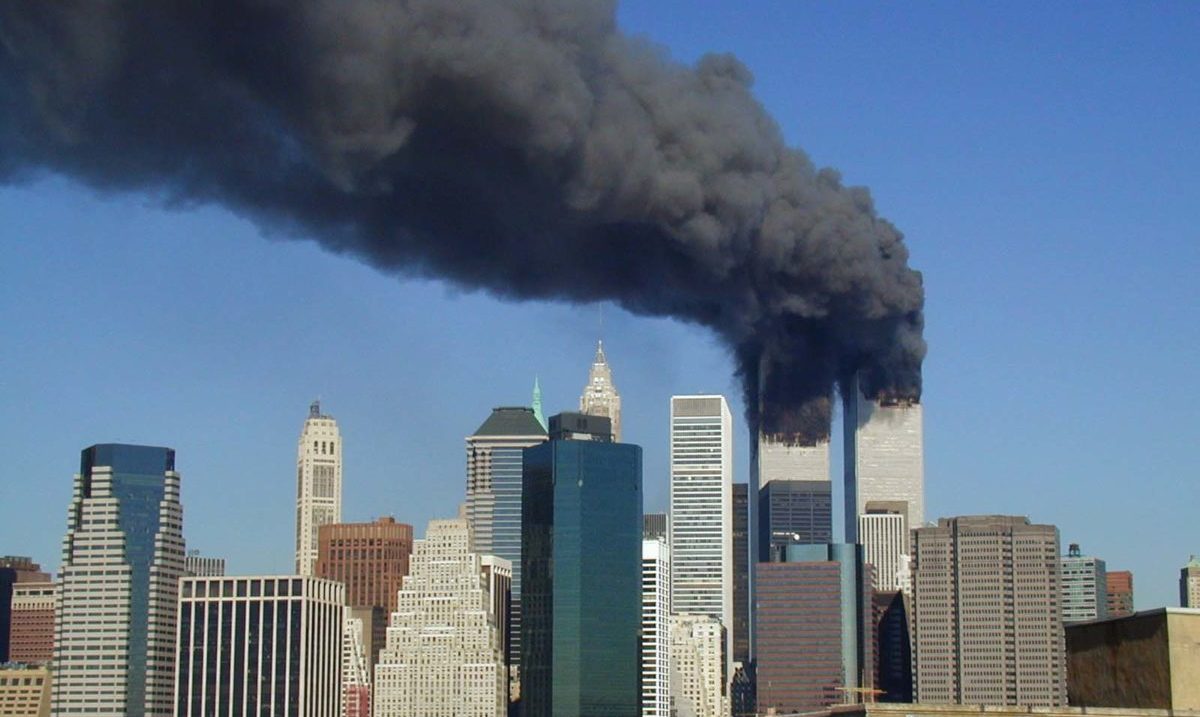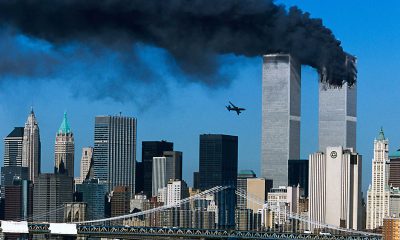
News

Stories from hell: SA Jews remember 9/11
Published
3 years agoon
September 11 2001 was 20 years ago and seemingly a million miles away, but for some South African Jews who were eye witness to the events, it remains close to home.
“I still have nightmares,” says Jonathan “Jonty” Kantor, who was meant to meet a friend at the World Trade Center (WTC) that day. He slept late, and woke to news of the attack, which profoundly changed his life.
“We didn’t know what was going on, and we honestly thought the world was coming to an end,” he says, a sentiment echoed by other South African Jews who were there. With all communication cut off, those who witnessed the chaos and horror had reason to believe it.
Kantor now lives in Johannesburg, but he was a student at Yeshiva Somayach Monsey at the time. He remembers that when he woke up, “everything was so quiet. Then I saw other students in a panic. They believed we were all about to die. They told me that planes had hit the WTC. I had always wanted to go there, and had arranged to meet a friend there that morning, but we both thankfully survived.”
He was also teaching a class whose students all had parents working at the WTC. By some miracle, all the parents survived. He also remembers that there were two brisses that day, which delayed people from going to work.
In the weeks that followed, “it was the same heaviness in the whole city that you see in a dead body. The only light was seeing Hatzolah rushing in to help. And you couldn’t walk more than a block without people hugging you.” This was in complete contrast to the city he had arrived in at the end of 2000, where he found people to be incredibly unfriendly.
Soon afterwards, he decided to return to South Africa. “I realised that nothing was more important than being with the people I love. 9/11 taught me that we shouldn’t take for granted the life we have. We complain about the small things, but they’re actually not important. Here in South Africa, we have a really good life, even with the difficulties. If we focused more on the positives, we could be happier.”
Port Elizabeth-born Grant Gochin, who now lives in Los Angeles, was supposed to be on United Airlines Flight 175, which crashed into Tower Two. “Our friends Dan, Ron, and their three-year-old son David had been on vacation in Rhode Island. We were in Manhattan. We were supposed to meet up and fly home together. My son, Bryce, was only about five months old. He was as cranky as hell. I was so frustrated that I said to [my husband], Russell, ‘Let’s just go home.’”
“We came home on the Monday. On the Tuesday morning we had the television on. The first plane hit, and I thought it had been an accident. Then United 175 hit, and I asked Russell, ‘Wasn’t that the flight we were supposed to be on?’ We realised that Dan, Ron, and David were dead.”
American born and bred Stacie Hasson now lives in Cape Town, and has some unsettling links to 9/11. Her close friend lived next door to lead hijacker Mohamed Atta, who lived and trained in South Florida in the months before the attack. “We would spend so much time at my friend’s house, and Atta would be around. He was always wearing a baseball cap and dark glasses,” she says.
Not only that, but she also lost a friend in the attack. “I remember exactly where I was at just 21 years old, learning that my childhood neighbour, Michelle Goldstein, lost her life in Tower Two shortly after calling her mother to say she was okay after Tower One was hit. She got married six months to the day before it happened. Finding Michelle’s name at the memorial was unlike anything I could have prepared myself for.”
“I saw people jumping out of the towers,” says Elise Barron Jankelowitz, who was visiting New York with her brother after attending her other brother’s wedding in Chicago. They were going to stay at a friend, but landed up staying at the Marriott Hotel that linked the Twin Towers.
“We arrived the night before, and woke up to a blast. The hotel’s alarm was going off. Our windows were starting to crack, and we saw smoke and debris.” At first they were told to stay in their rooms. If they had, they wouldn’t be here to tell the tale.
“Eventually, they told us to get out. We got dressed, grabbed passports and travellers cheques, and started walking down the stairs from the 15th floor,” she says. “The lifts weren’t working. We heard people shout, ‘A body hit my [hotel] window!’ Lots of people were in pyjamas. As we were ushered out, policemen said, ‘Cover your head and run.’ As we were crossing the road, we heard this insane noise of a jet engine, and then the second plane hit.”
That was when they saw people jump. It was also when her brother told her “these buildings are coming down – we need to get away”. He also said they should stay near water in case they needed to jump in.
That was when the first building fell. “I couldn’t see my hand in front of my face. A man appeared and it looked like his eyes were bleeding. He was covered in ash. I gave him a bottle of water, and as he washed his face, he said, ‘I’ve just come from hell.’”
They were waiting by the Staten Island Ferry when the second tower fell. “We hid under a truck. Everyone thought bombs might fall, or another plane might hit.” Eventually, they made their way to Staten Island where they bought essentials and got hold of family. They lost everything they left in the hotel, but were grateful to be alive. “As we flew out of New York six days later, there were fighter jets on either side of us. I’m so grateful my brother thought so smartly. We went back a year later to retrace our steps.”
Rabbi Levi Avtzon, now rabbi of Linksfield Shul, was a 17-year-old yeshiva student when he saw the second plane hit. “In the corner of the large study hall, which was on the fourth floor of a large building in Brooklyn, there was a fire escape. If you stood there, you had a perfect view of the Manhattan skyline.” He heard that smoke was coming out of the towers, so he and others went to look. Some drifted away, but he stayed. “A plane suddenly showed up. I was sure it was from the fire department coming to spray water. A split second later, the top half of the south tower blew up. It looked like a 50-story fire – like a bubble of fire.”
Later, visiting Ground Zero, “I remember the stench. It was all-encompassing. The whole experience made me feel unsafe. I would stand at the same fire escape and check that the Empire State Building was still there. Twenty years later, I still struggle to make sense of the events of the day.”






